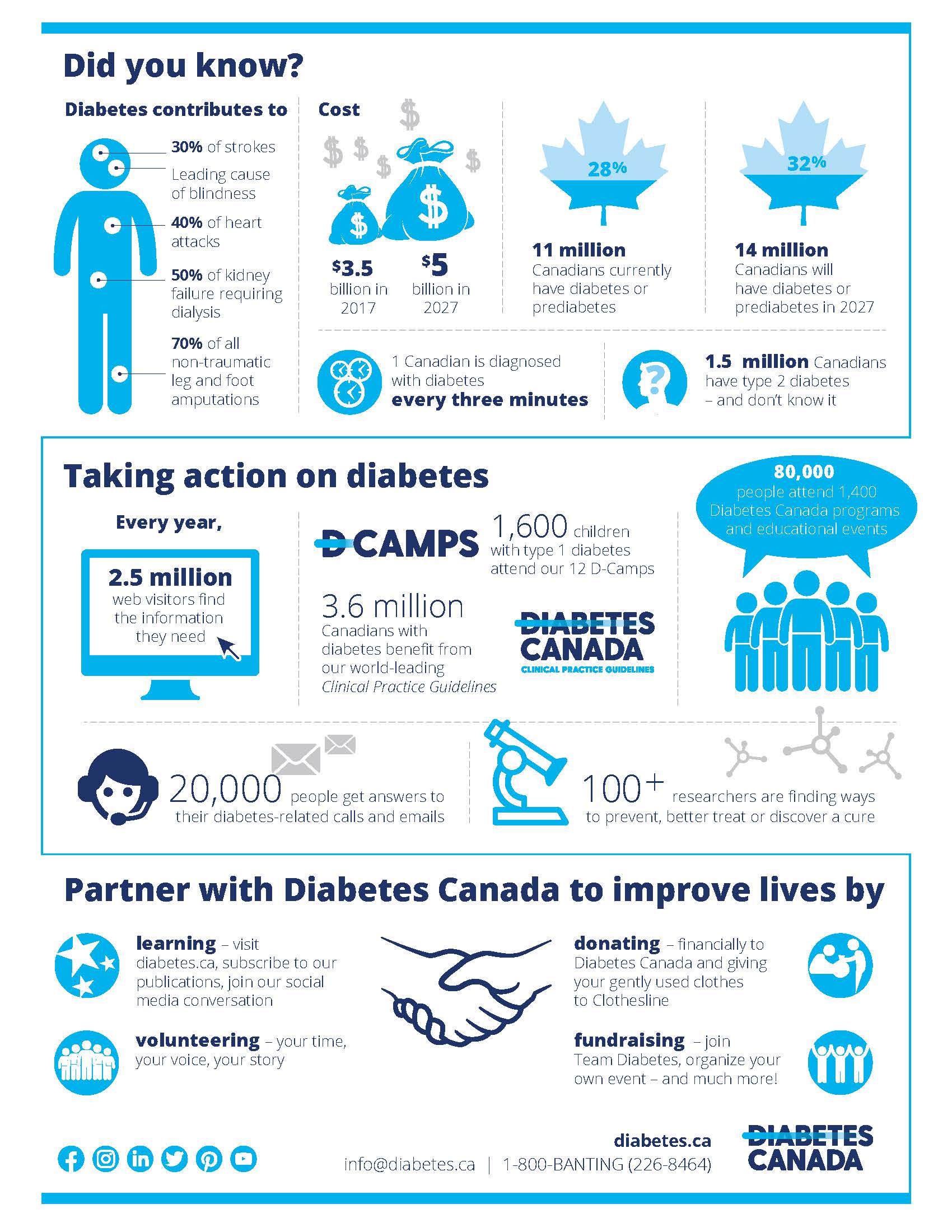Diabetes Facts
Preparing you for your role as a Put a Squeeze on Diabetes ambassador.
When you fundraise on behalf of Diabetes Canada and D-Camps,
you are an extension of our representation in the community. It is
helpful to familiarize yourself with diabetes and the work of Diabetes Canada and D-Camps so
you can answer the questions you might receive. Below is some
information to help you. If you encounter questions you can’t answer, please contact us at 1-800 BANTING (226-2464) and we will be happy to help you find the right response.
About type 1 diabetes
Type 1 diabetes is a complex chronic disease with no known cure.
- Type 1 diabetes affects approximately 5 to 10 per cent of Canadians with diabetes, and occurs when the body is unable to produce insulin, a hormone that controls the level of glucose (sugar) in the blood. The cause of type 1 diabetes is unknown and it is not preventable.
- To survive, people with type 1 diabetes must take synthetic insulin (by multiple daily injections or through an insulin pump) to measure and adjusti their blood sugar levels.
- For someone without type 1 diabetes,
the average blood glucose level is 5 and will automatically remain within a
percentage point of that throughout the day.
For a person with type 1 diabetes, these numbers will fluctuate
constantly.
- Low blood sugar levels lead to sweating, nervousness, weakness, hunger, anxiety, blurred vision, dizziness, confusion and in extreme cases unconsciousness and death.
- High blood sugar levels lead to increased thirst, headaches, difficulty concentrating, frequent urination, fatigue and in extreme cases, diabetic ketoacidosis, a life-threatening condition caused by prolonged,elevated and untreated blood sugar levels.
Type 1 diabetes is relatively rare, which can lead to feelings of isolation, loneliness and decreased self-esteem.
- An estimated 300,000 Canadians live with type 1 diabetes, where roughly 30,000 are “camp age” kids.
- On average, there are only two children/youth with type 1 diabetes per school, nationally.
Type 1 diabetes is difficult to manage well, because:
- kids on an insulin pump must do more than 120 pump site insertions a year;
- kids taking insulin by injection must take more than 1,095 injections each year;
- 2,920 blood sugar tests are done each year (eight recommended tests per day); and
- there are things that affect blood sugar levels such as carbohydrates, insulin, physical activity, stress, emotions, puberty, illness, and weather.
Impact of D-Camps:
- 94 per cent of campers formed a bond with others living with diabetes
- 88 per cent of campers gained self-esteem related to living with diabetes
- 66 per cent of campers learned techniques to manage feelings/cope with challenges around living with diabetes
- 49 per cent of campers learned more about carb counting at camp than at their diabetes clinic
- 38 per cent of campers learned more about insulin dose adjustments at camp than at their diabetes clinic
- 55 per cent of campers did their first solo injection or pump site insertion at camp
- 90 per cent of parents felt camp provided their child with the tools to live day-to-day with diabetes








